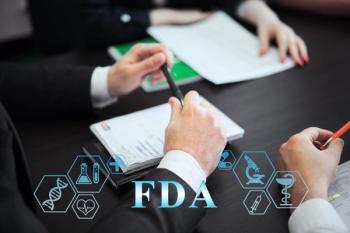
- Pharmaceutical Executive-07-01-2022
- Volume 42
- Issue 7
When It Comes To DE&I, Silence Is Deafening
For industries like pharma, company voices are vital to building trust.
The last several years have created an even more pressing demand for companies and CEOs to take a stand on societal issues than in the past. When it comes addressing these issues, one of the first steps is to establish trust.
Edelman has studied trust for more than 20 years. According to the 2022 Edelman Trust Barometer, business is the most trusted institution across government, employers, non-government organizations (NGOs), and media by a 5-to-1 margin. Respondents want business to play a larger role in climate change, economic inequality, workforce reskilling, and addressing racial injustice.
The finding on systemic racism is enlightening. While consumers may not trust brands and their CEOs to respond to systemic racism, the study found that employees do trust their own employers and leaders to respond to systemic racism. Interestingly, the data found that “my employer” was the only trusted institution across business, government, employers, NGOs, and media.
Edelman found that 60% of employees want their CEO to speak out on controversial issues they care about, and 80% of the general population want CEOs to be personally visible when discussing public policy with external stakeholders or work their company has done to benefit society.
In diversity, equity, and inclusion (DE&I), company voices are critical to building trust with stakeholders, particularly employees. Take, for instance, the story of Disney earlier this year. Employees of the company walked off the job to protest the company’s less-than-expected supportive response to a Florida bill that would restrict discussion of gender and sexuality in schools. The fallout has been telling. A recent survey of Americans’ views of corporations by Axios and the Harris Poll shows Disney’s public image dropped from 28th place last year to 65th in 2022.
What does this mean for the pharmaceutical industry and our leaders? Avoiding controversy is now a seemingly impossible task. Taking a “wait-and-see” or quiet position is no longer acceptable. Employees and other stakeholders can impact the reputation of the company. With a trust score of 61% for the pharmaceutical sector, we have room for improvement. There is good news here. As an industry, we can lead in important areas, including racial equality, gender parity, healthcare access, and health education. The following are a few examples of where pharma is proactively communicating:
- Pay equity and representation. In a best practice, Pfizer launched the 2025 Opportunity Parity initiative to increase female and minorityrepresentation in senior-level positions. Since 2020, the company has released results every year.
- Future of Roe v. Wade and its impact on employee healthcare. Big Pharma has yet to take a stand on this. However, Apple, Citigroup, Salesforce, and Amazon have announced changes in their healthcare benefits.
- The detrimental impact of conversion therapy for LGBTQ. The Royal College of Nursing Congress 2022 condemned “torturous” conversion therapy.
- Focus on belonging as an essential part of DE&I. LinkedIn, Johnson & Johnson, and EY are adding “B” for “belonging” to their DE&I acronym (DEI&B).
- Ethnic and racial disparities in clinical trials and evaluation of outcomes. Last year, Novartis pledged a decade-long commitment to Morehouse School of Medicine, as well as 26 historically black colleges, universities, and medical schools, to establish programs that target the root causes of disparities in health outcomes.
- External advisor involvement in DE&I performance. Sanofi recently launched a DE&I board with outside advisors, the first of its kind in pharma. This move will help bring a greater external viewpoint to the organization.
Frances Frei, professor of technology and operations management at Harvard Business School, gives a great Ted Talk about the elements of trust (the research is also published in Harvard Business Review). She refers to three components of trust that make up a trust triangle: empathy, logic, and authenticity. Our industry has a special obligation in these areas as we espouse missions centered around care and compassion and serving others in their most vulnerable states. By proactively communicating messages of support and inclusion, we can do right by many of our stakeholders, particularly patients/consumers and employees.
Denice Torres, senior healthcare executive; founder of The Mentoring Place, a free career mentoring program for women; and CEO of The Ignited Company, a change management and DE&I firm
Articles in this issue
over 3 years ago
The True Nature of Danger Behind IP Waiver Proposalover 3 years ago
Cracking Down on Speaker Programsover 3 years ago
Dynamic Compliance: The Best Defense for Pharmaover 3 years ago
Breaking Down Barriersover 3 years ago
Biotech Performance Glance—and Promising Ripples for Recoveryover 3 years ago
If Non-Formulary Hospital, Price May Not Be the Rxover 3 years ago
Asia’s Rise in The Global Pharma Industryover 3 years ago
Rewriting European Regulations on Rare Disease TreatmentsNewsletter
Lead with insight with the Pharmaceutical Executive newsletter, featuring strategic analysis, leadership trends, and market intelligence for biopharma decision-makers.




